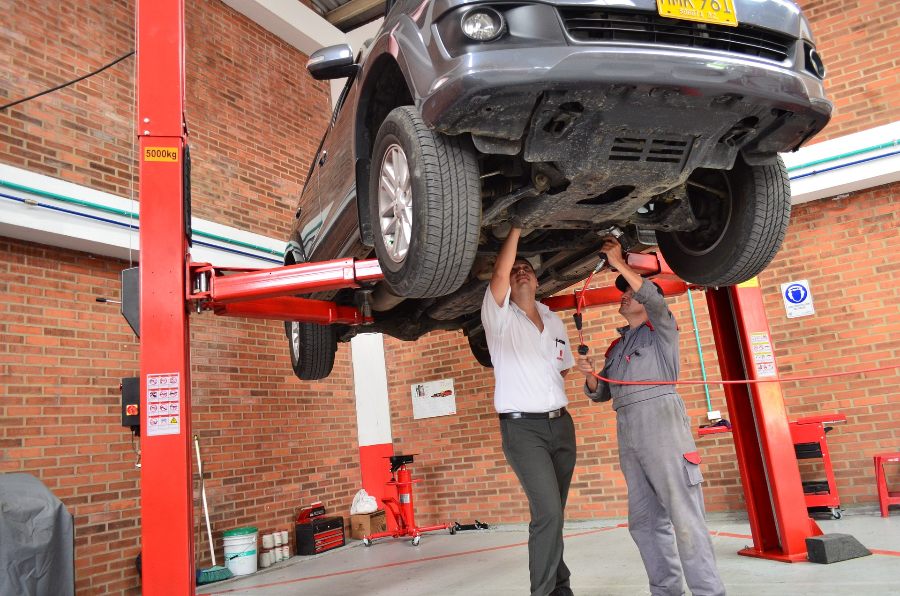7 Noises Your Car Makes That Could Mean Trouble
When your car runs, it makes plenty of sounds. From the buzz of the engine to the soft hum of the tyres rolling on the road, no vehicle is 100% noiseless.
That said, there are definitely noises that you don’t want your car to make because they mean that there’s something wrong. Here are just a few of the things that should sound the alarm (no pun intended):
A Rattling or Clunking Noise
There are many things that can cause your car to make rattling or clunking sounds while you’re driving. However, the most common culprit is usually something from the suspension system. In particular, bad bushings can cause certain parts to loosen and vibrate excessively.
Other parts of the suspension like worn or damaged sway bar links, shocks, ball joints, or struts can also cause these sounds. Have your car checked ASAP and have the parts replaced with high-quality components from a trusted auto parts supplier.
If the suspension isn’t the issue and the sounds disappear when you hit faster speeds, check the wheels. There may be loose lug nuts inside the hub cap, meaning your wheels may not be fastened properly.
Hissing Sounds
If you hear hissing sounds coming from your car, it’s likely that there’s a leak somewhere. Check the cooling system or vacuum line to prevent issues like overheating and fuel economy. Bring your car to your mechanic ASAP to fix the problem.
Sometimes, a small puncture in the tyres can also cause a hissing sound as the air escapes. If you want to make sure, dilute a small amount of soap in water and splash it onto the tyres. You should be able to see the mixture bubble or fizz on the part where there’s a leak. Replace the tyre or patch it up if you have the appropriate tools.
Squealing or Grinding Noises When Braking
Depending on the severity of the damage, brakes make either a squealing or grinding noise. If your brake pads or brake shoes are worn down, they will make high-pitched sounds; if they’re fully worn, they will make grinding noises. You don’t want the situation to reach the latter stages, because it means that the calipers are already scraping against the rotors.
As soon as possible, replace the brake pads and other brake components once you hear the squealing sounds. If not, you may end up spending more money replacing more brake system parts.
A Loud Banging From the Back End
When your engine backfires, it can cause a loud banging sound that’s almost like an explosion. Often, this happens when the engine is “running rich” and receives more fuel than air. You may also experience backfires with bad spark plugs.
Though this situation is alarming, it isn’t quite an emergency. Rather, it’s an indication that your vehicle isn’t achieving optimal engine performance. This can result in various issues in the future, such as exhaust damage. It’s best to have the issue fixed promptly to prevent other worse problems.
Squealing From Under the Hood
There are many components under your car’s hood, meaning there are plenty of things that make noise. If you’re hearing squealing sounds under the hood, they’re likely due to the loose or worn belts of the compressor, alternator, or power steering pump. It may also be a problem with the serpentine belt, which drives multiple components.
Click-Clacking From the Front or Back
If you have a front-wheel drive vehicle and you hear something click-clacking from the front, like a train moving on its tracks, it’s possible that the CV joints are damaged. The CV (constant velocity) joints are found on the ends drive axles, so check there for any trouble.
Meanwhile, if you’re hearing the same sounds from the back and you have a rear-drive vehicle, check the universal joint for any signs of damage. If you can’t figure things out, bring your car to your mechanic for a proper diagnosis.
Crunching or Grinding Gears
For those who drive a manual-transmission car, a crunching or grinding sound is likely because of a worn-out synchroniser. This enables you to shift gears, so an issue with this component will result in mismatched speeds of the transmission shafts. Another issue could be a clutch that doesn’t fully disengage.
Whatever the cause, it likely isn’t something you can fix on your own. Have a professional look your car over for a full check up and repair service.
To ensure your safety and comfort, your car needs to be in tip-top shape. To achieve this, you need to know when something is wrong so that you can address it immediately. Take note of these noises and pay careful attention to your car. If it starts emitting these sounds, then you know it’s time for repairs or parts replacement.



